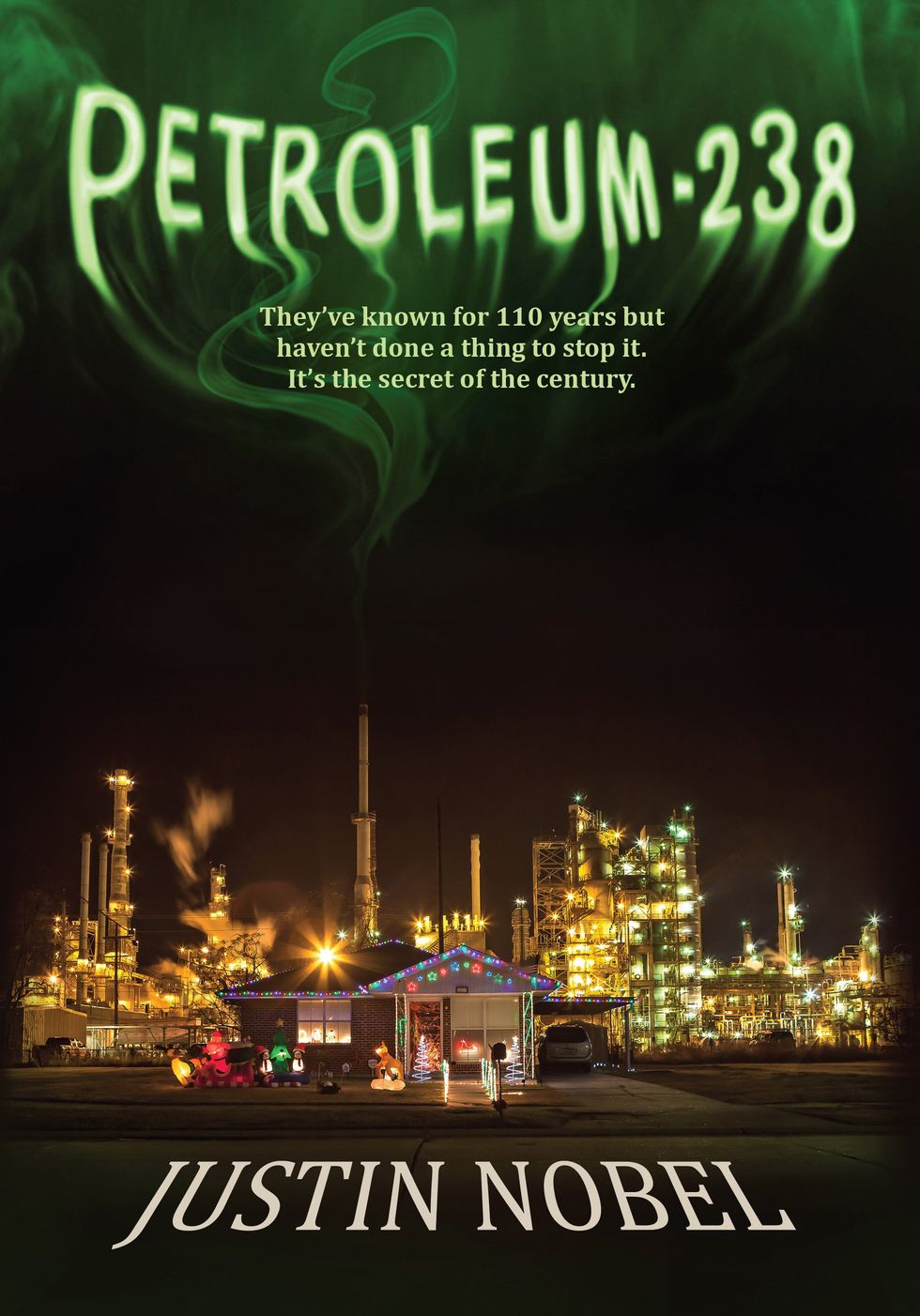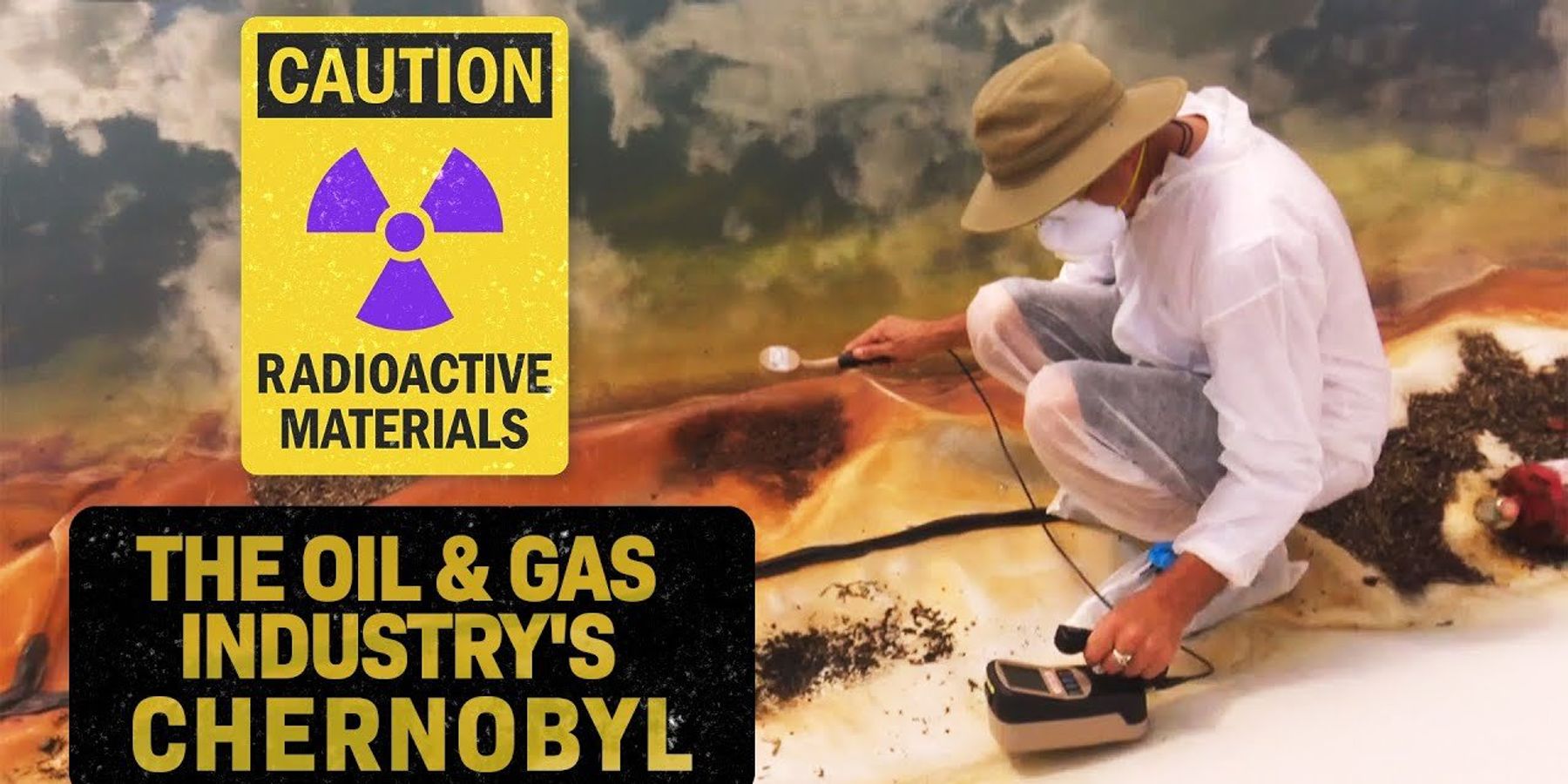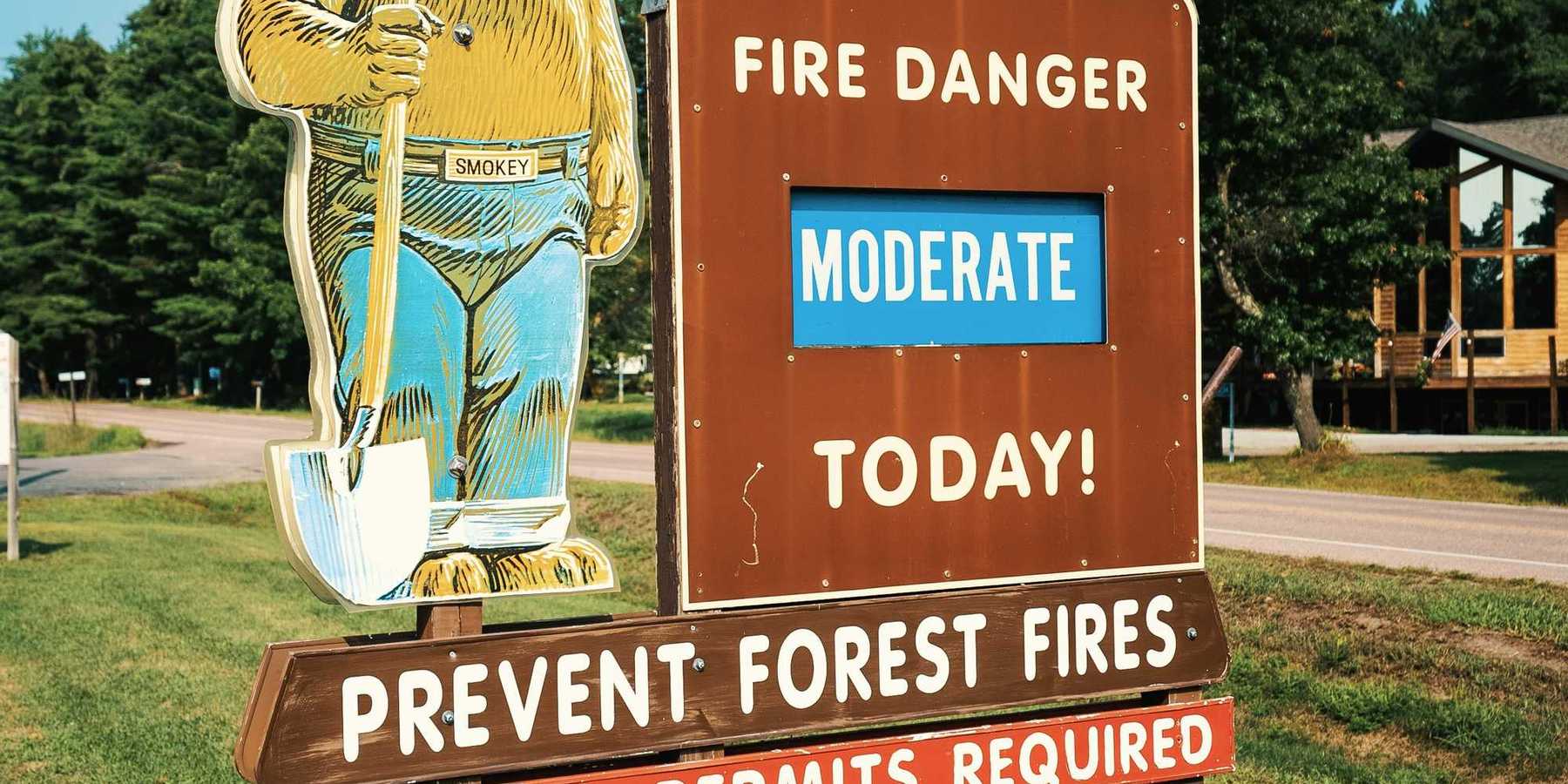The oil and gas industry’s radioactive problem: Q&A with Justin Nobel
“Of all the levels of radium in produced water or brine around the world that I’ve looked at, I have encountered none that are consistently as high as what comes out of the Marcellus Shale.”
In January 2020, just before the start of the COVID-19 pandemic, Rolling Stone published an investigative report on widespread radioactive contamination from the oil and gas industry.
Justin Nobel, the journalist responsible for the investigation, recently published a book on the same topic, “Petroleum-238: Big Oil's Dangerous Secret and the Grassroots Fight to Stop It.”
EHN reporter Kristina Marusic has spent six years covering the oil and gas industry in western Pennsylvania, a region that features prominently in “Petroleum-238.”
Marusic caught up with Nobel for a discussion about what he uncovers in his book, what it means for western Pennsylvania and the nation, and what might happen next.
This conversation has been edited for length and clarity.
Marusic: Your book highlights health risks from the oil and gas industry’s radioactive waste in various sites across the country. Can you speak about the extent to which this is a national problem?
Nobel: One of the first revelations for me as a journalist looking into this issue was that this is a problem that goes beyond and predates fracking. Oil and gas development has always brought a lot more to the surface than just oil and gas.
Since day one for the oil and gas industry, there’s been brine or produced water, sludge, drill cuttings, and drilling waste that contain radioactive substances. This has always been an issue at oil and gas sites across the country.
Fracking has exacerbated that problem by bringing drilling closer to communities in Pennsylvania, Colorado, North Dakota, and other parts of the country as the current boom has tapped into previously inaccessible formations that, in many cases, happen to be more radioactive. The Marcellus Shale is a great example of that.
Marusic: Did you hear any stories that stood out to you from western Pennsylvania in particular?
There was a period in the mid- and late 2000s when it was legal to take oil field waste water from the Marcellus shale, which has very high levels of radioactivity, to sewage treatment and wastewater plants in Pennsylvania that are not qualified to treat radioactive waste.
A lot of radium was discharged into western Pennsylvania waterways during that time, and I was trying to figure out how much made it into waterways and then into the people who rely on those waterways for drinking water.
I was shocked to learn that drinking water providers are only required to test for radium once every nine years. That’s mind-boggling because radium can have a very profound impact on the human body, and the EPA [the U.S. Environmental Protection Agency] has set up a very paltry testing requirement that is entirely inadequate to protect human health.
I was shocked to learn that drinking water providers are only required to test for radium once every nine years.
Another reveal in Pennsylvania was a study by a well-respected epidemiologist in Canada that found a statistically significant association between even minor upticks of radium in drinking water and Ewing Sarcoma [a rare cancer that has impacted dozens of residents in western Pennsylvanian fracking towns].
That study doesn’t close the door on this issue — that’s not how science works — but this is an important data point that I haven’t heard discussed in conversations with regulators and government officials about the Ewing Sarcoma cases in western Pennsylvania, where we also know there’s been lots of excess radium released into waterways that are used for drinking water.
Marusic: Do you have a sense of whether this works differently in other parts of the world?
Nobel: I haven’t been able to look under the lid of every oil field around the world, but I have started investigating this internationally, and everywhere I’ve looked so far this appears to be a big, expensive problem.
The industry has an incentive to get rid of this waste as quickly and cheaply as possible, and it’s typically not being regulated as radioactive. The question of what should be done with this waste is complex, but around the world the industry has generally handled it in simplistic, sloppy ways.
That said, of all the levels of radium in produced water or brine around the world that I’ve looked at, I have encountered none that are consistently as high as what comes out of the Marcellus Shale.
Marusic: Your book also spans many decades, from the earliest days of the oil and gas industry to problems happening now. Why did you feel it was important to explore this full history?
Nobel: Many of the small towns in West Texas that sprung up around oil and gas operations have a little library or museum tracking the local history.
They usually tell this proud tale of the big, strong men who did the work to build the first tank or railroad or pipeline, but what’s not laid out is what the workers, women, and children were experiencing in these communities.
My reporting led me to a woman named Linda Fox who grew up in one of these towns in the 1950s and tagged along with her grandfather to his job cleaning up oil field waste. Her story is very different from this proud story you find in the history books. Women in her community were sick and having miscarriages, there was lots of sickness and cancer within her own family, and she gave birth to a baby with severe deformities. We don’t have much scientific evidence about the causes of these things, but having anecdotal evidence that they were rampant in oil and gas towns in the 1950s is important.
They usually tell this proud tale of the big, strong men who did the work to build the first tank or railroad or pipeline, but what’s not laid out is what the workers, women, and children were experiencing in these communities.
Epidemiologists and public health officials have tools they could use to trace these histories further. And if we can show that this isn’t just happening now for these communities, but has always been occurring, it really rewrites the script of what oil and gas did for this country. The industry runs on this narrative that it helped create national security — and there’s some truth there — but it’s also important to ask what it did to the health of women, mothers, children, and workers.
Marusic: Was there anything else you learned while working on the book that surprised you?
Nobel: I was moved by how important frontline community advocacy groups are. Often that can just be one person who turns on an iPhone and takes a video and this is the beginning of an important documentation process.
There’s this idea that these people are just animated activists who are overstating these harms and don’t have scientific backup. I disagree with that. People who are paying attention to this industry will absolutely be animated, because witnessing these harms and the complete lack of concern about them from regulators will eventually start to make you upset.
I’ve learned that these aren’t crazy people, that they have good reasons for being very upset. The people living on the frontlines of this industry are gathering valuable data, and they should not be ignored. They should be listened to.
Marusic: What do you think should be done to effectively regulate radioactive waste from the oil and gas industry?
Nobel: I think an important first step would be for the nuclear regulatory commission to regulate oil field waste. This waste is not being regulated by the nation’s brightest regulatory minds when it comes to radioactive materials, and I think if those minds had to really examine the mishandling of radioactive oilfield waste…they would be stunned, and that would provide a pathway to a regulatory framework that would stop this industry from continuously spreading radioactive harms all over the place.
People will say the EPA is never going to regulate the oil and gas industry’s waste as hazardous because industries or regulators are too corrupt, but I think that’s the wrong thing to focus on… It’s important to push these conversations and insist on a public dialog and try to change these things we know are wrong, even if we’ve lost faith in our regulators.

Find Nobel's new book, “Petroleum-238: Big Oil's Dangerous Secret and the Grassroots Fight to Stop It,” at your local bookstore.















